This content may include affiliate links, which means if you click on them, I may get a commission. The cool thing is, there’s no extra cost to you!
Why I won’t say #AllLivesMatter anymore (and why you shouldn’t either) #BlackLivesMatter
This post has been sitting in my drafts folder for months. My husband said not to post it. That's because he doesn't like to make waves. Me, I am not scared of controversy but I wavered. I mean, I don't want to offend anyone. But after reading the Facebook comments on an article by Ruby from the G.U.B. Life explaining why it is offensive to say #AllLivesMatter, I was compelled to hit publish. THIS blog post details how and why I changed my perspective on Black Lives Matter and #AllLivesMatter. And why you too should consider how insulting “#AllLivesMatter” is, even when you think you are being inclusive. Please read this with an open mind. Feel free to share this article and the articles I have linked with friends and family who have questions about or are struggling to grasp the idea of Black Lives Matter.
A few months ago I was having a discussion with my daughter about #BlackLivesMatter (BLM). She couldn't eloquently state her reason for supporting the movement and I was not really digging the idea of her supporting it. We discussed why a movement like BLM is looked at poorly; some people jump on the bandwagon and use a movement for their own personal agenda by twisting the message. We wanted to be sure wasn't getting sucked into that line of thinking. And then I said, “well, #AllLivesMatter”. Today, I would have a different conversation with her.
My thinking about #BlackLivesMatter (BLM) changed alot in the last few months. A light bulb finally went off. Alot of my views became clearer when a Facebook Group of 20,000 women I belong to started discussing race, #BlackLivesMatter, and the senseless killings of civilians and law enforcement that have occurred over these past months and years here in the US.
I have to start with a little history about me to give context to my views then, my views now, and why they changed. I have a unique perspective given my own race and upbringing and my mixed race household now.
How I have come to understand being white, being Latina, and being black
I am half Mexican and half white. There's a mix of other things in there too, Native American for example, but to keep it simple, let's go with half brown and half white. I had white grandparents who lived in an affluent part of town and Latino grandparents who lived literally on the wrong side of the tracks.

I experienced two cultures growing up. The part of town we lived in during my elementary school years had a lot of black kids and Mexican kids so at home, I experienced multiple cultures from friends and neighbors.
My grandparents had alot of similarities. Both of my grandparents owned their own businesses. They bought and owned their homes. They paid taxes. They were responsible citizens. They grew their own backyard gardens and shared the produce with neighbors. They set off fireworks on the 4th of July and had barbecues. Family was important to them. They were crafty and handy around the house.
But their experience in the world and my experience with them was completely different.
I went to elementary school three schools away from my neighborhood, at the school on the affluent side of town so I could walk home from there to my white grandma's house. Her house was filled with expensive items collected during her travels from around the world, had a fancy living room with white carpet, and they always had new, top of the line cars. We loved going to her house because the candy dish was always full and she had fancy snacks like Oreos and Quaker Chewy granola bars. The only time I saw a police car in that neighborhood, growing up, was when someone called an ambulance for having a heart attack or health issue.
Contrast this to my other grandparents, the Latino grandparents, who lived only a few miles from my white grandma's house. Their house was always hot and muggy because they had a swamp cooler instead of central air. They scrimped to buy food and feed everyone but they worked really hard to avoid anyone noticing it. Their nicest furniture was covered in plastic and we couldn't really use it except on holidays. There were shifty neighbors but it was just understood that you didn't call the cops in that part of town or make any kind of fuss. Police cars would roll by and it would strike fear in my heart. I didn't know why – it just did. I could feel it in everyone around me. No one was doing anything wrong; they were just scared.
We moved to the middle of the desert when I was nine years old. My sister and I were two of three “brown” people in our Elementary school. The other brown kid was my best friend Michelle, who happened to live cater-corner to our house and was half Italian and Mexican but had blond hair. Her mom and my parents both still live in the same houses. I didn't know I was any “different” until that move. I had friends of all races at our previous house. At the new house, we had bigots for neighbors whose home-schooled terrifying teen boys rode through the neighborhood on tractors and scared the crap out of me half the time. This is when I started noticing the “difference” in how I was treated.
Fast-forward to going into the Army. I met my husband at a base in Monterey, California. Eighteen months later I was transferred to a base in Texas for additional training. The day I got into Texas, I got pulled over by the cops and was issued a speeding ticket, though there was no way I was speeding because I was stuck behind a U-Haul truck going 55 mph. That was on my birthday in November 1997. I continued to be pulled over repeatedly, by cops of all races, for no reason at all during the eight or so months I was in Texas. On Thanksgiving, I was pulled over for driving in the rain, which is perfectly legal. At first I thought it was because I had California plates on my car. There were other people in my platoon with California plates and they did not get pulled over once while we were stationed there. They were white. The one black guy in my platoon was also pulled over multiple times during our short term in Texas. He and I both had brand new cars so it's not like we had busted tail lights or old beaters. Was it that you couldn't drive while brown in Texas?
My husband is black. In Texas, I would go to the store with my husband and people would give us dirty looks. We'd hear comments under people's breath when we'd go out to bars. The town I was stationed in was a total dirt-covered crap-hole and there wasn't much to do. I cursed Texas the day I left in 1998 and vowed to never even fly over the state.
Around this time in my life, in my twenties, I started to notice that I was treated differently as my skin tanned. I can get really pale in the winter and look “not-so-Hispanic”, especially because I have green eyes. I can get really tan in the summer. I started noticing that I would be treated differently the darker I got. One day, I got pulled over by the police with my husband in the car. He was incredibly over the top respectful and accommodating to the police officer. I didn't think he needed to be THAT nice. I mean, the cop was acting like an asshole! My husband is laid-back and easy-going. But with cops I noticed a tense feeling; an extreme effort by him to just make sure things are polite, easy, and as unremarkable as possible. We weren't doing anything wrong, I was driving the speed limit, and I was livid that a cop would even think to waste my time and pull me over!
We were treated WORSE by the police when my husband was in the car. My black husband.
My husband was more polite and tense with the police than I have ever seen him in my whole life.
Growing up the way I did, I felt some white privilege. I felt that empowerment, I felt I could do anything, and I felt I could take on the world. I think a lot of that has to do with having a mixed family – it wasn't really called out to me. I deserved the fancy Christmas tree, the fancy roast beef dinner, the beautiful cars, the perfect furniture, the fancy snacks, and the nice yard of the white neighborhood. It wasn't a question in my mind. My parents moved us to a rural area when I was in elementary school because they could see that the environment we were living in was going to be a bad influence on my sister and I. They had the ability to do that move because of my white grandma's help. If it weren't for that, we might have grown up in the city, in the bad part of town, and have a very different perspective on life. I surely wouldn't have experienced the privilege I enjoyed for much of my life.
I also experienced the browner side of things with my Hispanic family. Some of the experience was because of a difference of class but not all of it. It took me a while to understand that my white grandparents could do what they wanted and go where they wanted, and my Hispanic grandparents had limitations. Not just because of money but because they wanted to avoid trouble and trouble came when you started going places brown people shouldn't go and doing things brown people should not do.
And now, being married to a black man and having children, I have even more experience under my belt. I've seen just the tiniest piece of the black experience in living with my husband these past 20 years. Things are NOT equal.
I explain all of this to say that I have first-hand knowledge that the experience of black people in this country is different from that of other races. The experience of people as they get “browner” is different from being white. But I also know what it feels like to have white privilege. I know what it feels like to be discriminated against. I don't have a fear of the police doing wrong – I am angry by it. That alone is evidence of my white privilege showing. I feel like “how dare they!”. I am not scared they will shoot me and that is from my upbringing. But I should be scared. And that makes me even angrier to see that difference.
What does #BlackLivesMatter mean?
#BlackLivesMatter means that the experience of black people is not the same as it is for all people. On paper, all things look equal because under the law, rights are given to everyone. We have black people on TV, we have black people in magazines, we have black millionaires. So what's the problem?
Why is it so hard for people to see that#BlackLivesMatter is not an attack or an exclusion of others?
#BlackLivesMatter is a really difficult, nuanced concept to comprehend if you are not black. To understand BLM, you need to have experienced being black. If you are not black, you can catch glimpses of the experience but you still cannot fully experience it yourself unless you are black. I can speak on this from my own experience. BLM is about the black experience and not a commentary on any other experience. White people are not “bad” for having a different experience. BLM is about the difference existing.
Philosophically we all know that treating people differently because of the color of their skin is wrong but in practice we still treat people differently. It's the woman clutching her purse closer or crossing to the other side of the street if she sees a black person walking towards her on the sidewalk. She doesn't even notice what she did. And she probably has “black friends” so how can she be “racist”?
It isn't about being racist. It is about behavior.
It's about why a black man driving a new car will be pulled over by the police when a white man in the same car is not pulled over. It's about a black child being followed around a store by a store employee, who is watching for stealing, while other children are allowed to climb all over the racks and no one says a word. It is why at an amusement park, I've seen black children scolded by a parent if they even think to try to climb on a planter but I see other children stomping on and ripping plants in planters to shreds. I have watched all of these things happen with my own eyes. Not just to me but as an observer of life. I have caught myself doing some of these things. Yes, I'll admit it! We are taught these behaviors, they are deep within us, and we have to be conscious every day to not do them. That is why we have to say “Black Lives Matter”. Because all lives don't matter the same YET.
Why is “#AllLivesMatter” or “#BlueLivesMatter” Bad?
When you say “#AllLivesMatter, you are discounting what Black Lives Matter represents, especially if you are saying “#AllLivesMatter” in response to “#BlackLivesMatter”. At that point, you are drawing a comparison between the two. We can all agree that philosophically, all lives should matter equally. The reality is that they don't yet – the black experience in this country is not on par with the majority or white experience in this country. BLM is not about being a victim or relying on race to explain someone's problems, as I have seen defenders of “All Lives Matter” state. “All Lives Matter” is telling someone that their story, their issue, does not exist and does not deserve attention. Saying “Black Lives Matter” is not a commentary on anyone else's life mattering or not mattering but saying “All Lives Matter” is a commentary that black lives don't matter since it is ALWAYS said in response to “Black Lives Matter”.
#BlueLivesMatter is even more threatening and offensive. No one is saying that the lives of police officers do not matter. First of all, being a police officer is a choice. Being born black is not a choice. Second, putting a chosen profession on par with the issues facing a race, is a comparison that should never be made. I'm not saying that the jobs of police officers aren't dangerous but that job is a choice. I don't like to touch people's butts so I chose not to become a nurse even though everyone in my family is a nurse. That has absolutely nothing to do with race. The cherry on top is that #BlueLivesMatter is offensive because much of the reason for the Black Lives Matter movement is the police violence against black men. When you say #BlueLivesMatter, you are comparing the dangers facing police officers with the dangers facing black men who deal with police officers. It's actually pretty disgusting if you think about it.
I link to a series of articles at the end of this post that give some great examples trying to explain the concept of BlackLivesMatter, such as if someone told you they had breast cancer, you would not respond with “All Cancers Matter”. Cancer is not a choice so it is a good enough but not perfect analogy. In relation to BlueLivesMatter, the cancer analogy would be that if someone told you that they had breast cancer and you responded that “Oncologists Lives Matter.” Um, yeah I guess they do but that sure would come off as pretty callous towards the person with cancer, right? Imagine that pain you would feel if you were facing an invisible struggle that no one could really see and those around you discounted what you were going through? That is what it is like when you say “All Lives Matter” and “Blue Lives Matter” to people. You think you are being thoughtful and inclusive of all lives and police lives, just like the person responding to the cancer patient is being thoughtful of all cancers and being thoughtful of all oncologists. To the cancer patient, none of that matters – only their struggle matters. I do dislike comparing race issues with cancer because it is kind of polarizing but it works as an analogy because of that polarizing characteristic. I hope this helps explain why “All Lives Matter” and “Blue Lives Matter” is so hurtful.
How To Change the Conversation in the Future
We need to acknowledge the issue and then be really careful about how we proceed. There is no right answer for solving the inequality of experiences in our country but the first step is being open to thinking in a different way. And that means stepping outside of yourself. It is actually REALLY HARD for people to step outside of themselves and look at a situation, especially if they have no experience or observations of something happening. It is painful to look at the ugly parts of the world.
It's like imagining you are a goat herder in war-torn Afghanistan. You can imagine what it looks like, what clothes you wear, how hot it feels, what you might eat, that you are probably scared for your safety much of the time. But to actually experience it, is another thing. The goat herder knows how fast his heart beats and how uneasy he is all the time and how completely exhausted he is from all of the war and anguish and hunger. Yet this feeling is normal to the goat herder because this is his reality everyday. We can imagine how something feels or what that life is like but that can never measure up to actually experiencing it firsthand.
When I see discussions about Black Lives Matter, I see so many people making the issue about themselves. It's not about YOU. It is about inequality, that we have the luxury of ignoring because it either isn't happening to us personally or it isn't happening with enough severity in our personal experience that we notice it. You might be thinking, “Well, Jennifer, you just went on for like 82 paragraphs about YOUR own experience.” Yes, yes I did in order to explain how and why I came to understand Black Lives Matter through my tiny experience with a black life, my husband's.
Our misunderstanding of Black Lives Matter will continue until one day we notice the difference in experience. And for the people who this is their everyday reality, they're like “why the hell can you NOT see this happening?! And why are you telling me that it is NOT happening?! Because it's not happening to you?!” Let's try to change that today.
I was really saddened and dismayed and angry and disgusted by the comments I have seen online about BLM but even more so today by the comments in response to the mom.me article linked on their Facebook Page. As I read each comment that blamed black people for being victims, that accused black people of living in the past, that blamed black people for being shot by police, that held up the existence of black professionals as evidence that an inequality problem does not exist, I literally had tears well up in my eyes. And if you know me, you know I am not an emotional person. Comment after dissenting comment was from white people. From people who have the privilege of thinking about and experiencing the world in any way they want to. It was a Marie Antoinette “let them eat cake”-like experience in ignorance and misunderstanding about the issues. And it was a glaring example of why this conversation needs to take place and continue over and over and over again. It will take generations to cleanse our country of these divisive and ignorant views, of the ingrained behaviors that cause us to unconsciously treat one another differently. I hope that in my lifetime, I see more change. But I doubt it will be enough. One step is better than none at all.
My hope here is that by offering these perspectives that we may see why there is so much upset. That we may understand at least intellectually why #alllivesmatter, #bluelivesmatter, and so on is sending the wrong message. Some of us say it out of concern and love but that's not what it conveys. We are not bad people. We are trying to do something good without knowing it is NOT good. It is not good to say #Alllivesmatter. I wish it were good. But we are not there yet. And for the people who continue to say #Alllivesmatter because they deny that inequality exists, well, I have no kind words.
About the Author
Jennifer Priest is a 20+ year designer in the arts & crafts industry and home DIYer with a passion for creativity. An Army veteran raised on a ranch, from her experience, she shares smart DIY projects that save money and fun craft ideas that anyone can make. Besides blogging, Jennifer is a Master Practitioner and Trainer of NLP, Hypnosis, and MER, and coaches other online entrepreneurs on money mindset, business, and living an intentional life. When not blogging, Jennifer is having adventures in the wilderness, on road trips, playing with her cats, and making paleo food.



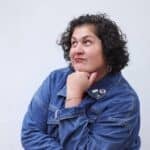
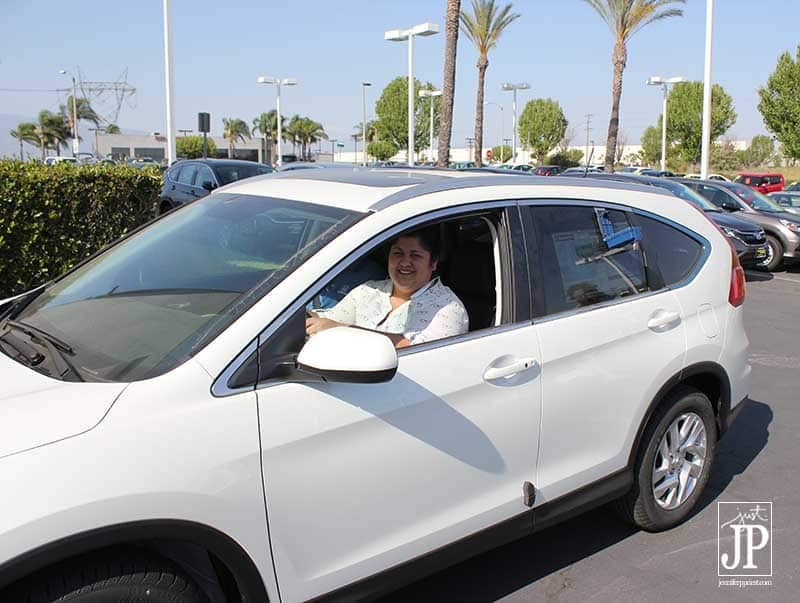
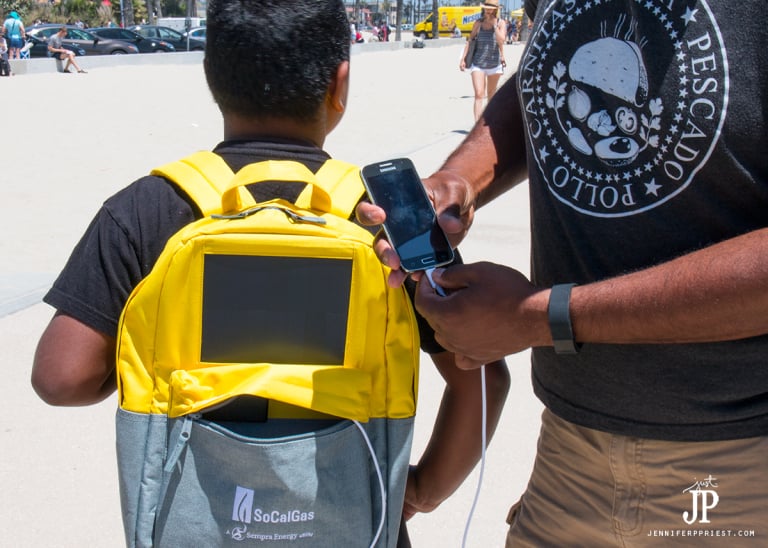
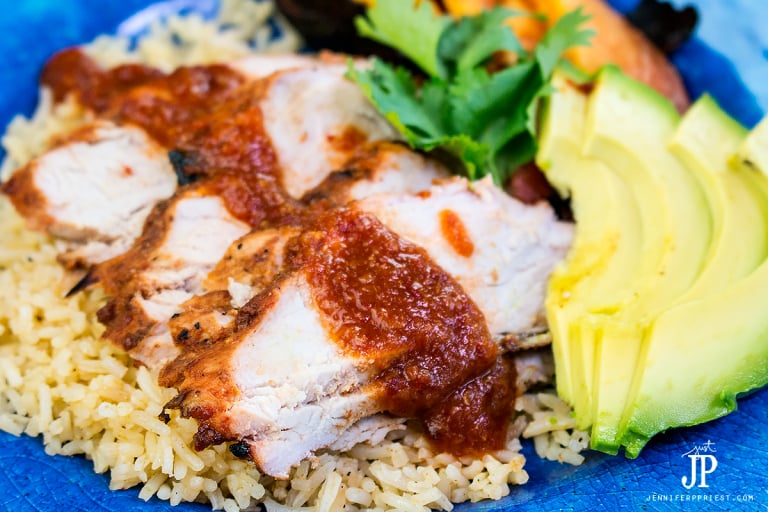
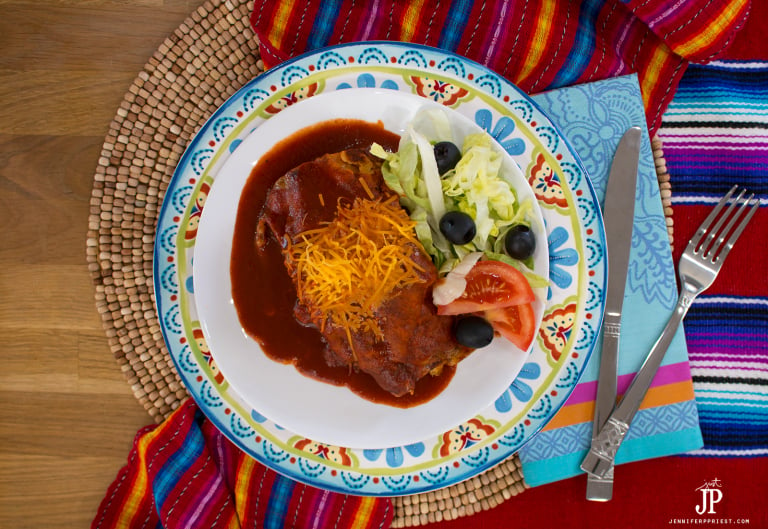
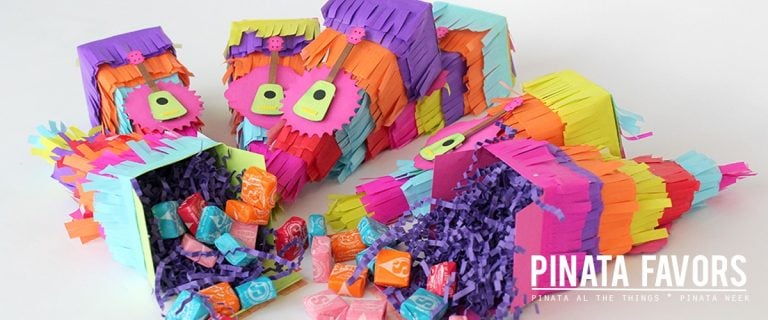

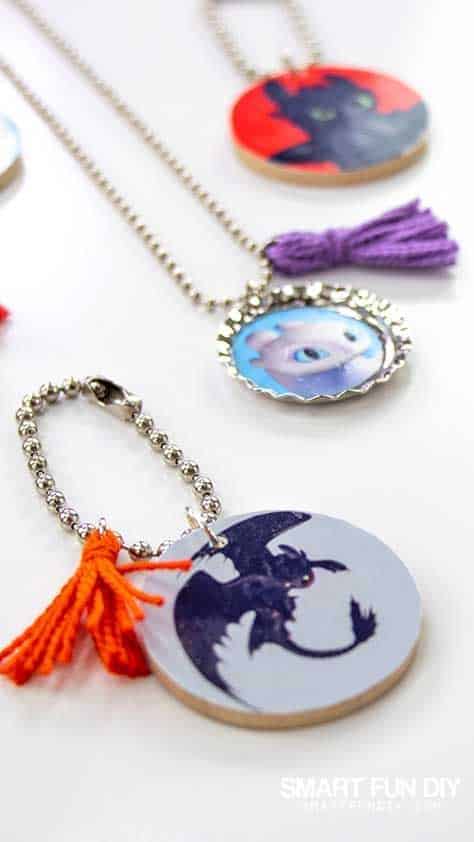
After Ferguson, I heard a story from a mother discussing the warnings she had to give her black teenage son on how the world would look at him in fear. I had the initial, “that’s so horrible” thought and went on with my day. That night my 6’3”, broad shouldered, athletically fit, 16-year-old son walked into the kitchen for dinner. When he came over and looked over my shoulder, I had my BLM epiphany. One thing keeps me from telling a child, my child, society has already labeled him.
I commend you for speaking out. It’s your courage and words that continue to help me understand the BLM movement. I hope it can do the same for others who are open to it and plant a seed for those who are not. Thank you.
Thank you Erin! And thank you for being you 🙂
In the UK I’ve not heard anyone in my community discussing this (BLM) but we really need to. I’m sorry there even have to be posts explaining it, and reading your experience makes me upset, but until more people talk and understand, less will change. I’m glad you’re so honest and hope that people’s thinking will be challenged. You’ve certainly made me think more
deeply.
Hugs to you- here’s to a brighter, better and fairer world x
Thank you Keren 🙂
Thank you for this blog. While I am not white, I also think that I have experienced white privilege. My daughter who is in her early 20’s has been very vocal on her FB page about the BLM movement. I didn’t want to discourage her but I would cringe every time I saw a post and make little comments to her about maybe not sharing so many articles because I didn’t want her to appear as “radical”. I backed off after she called me crying after reading the news about yet another black man getting killed at the hands of the police. But I still remained out of the conversation because I didn’t want to be another black girl talking about black matters which many perceive as playing the race card or being a victim. Until I watched the video of a man getting shot dead while in his car with his girlfriends 4 year old daughter in the backseat witnessing the entire incident. Listening to this little girl console her mother and thinking about not only how the bullet could have easier hit her but the nightmares that may haunt her for the right of her life, I could no longer keep quiet. I posted #blacklivesmatter on my FB page unapologetically. And that sad then is that one of my brown friends from high school responded with #alllivesmatter which is totally disrespectful as you so eloquently stated in your blog. My saying BLM doesn’t mean that other lives don’t matter. But right now, we can’t ignore the fact that while all things may be created equal, all things and all people are not considered equal. Thanks again for your blog. I’m glad I came across it after searching for callus remover on the Internet. That was an informative blog too ? Keep it up!
Oh Nia, thank you so much for sharing your story. I am so glad you are here 🙂
Thank you for this blog. While I am not white, I also think that I have experienced white privilege. My daughter who is in her early 20’s has been very vocal on her FB page about the BLM movement. I didn’t want to discourage her but I would cringe every time I saw a post and make little comments to her about maybe not sharing so many articles because I didn’t want her to appear as “radical”. I backed off after she called me crying when reading the news about yet another black man getting killed at the hands of the police…2 days in a row. But I still remained out of the conversation because I didn’t want to be another “black girl” talking about black matters which many perceive as playing the race card or being a victim. Until I watched the video of a man getting shot dead while in his car with his girlfriend’s 4 year old daughter in the backseat witnessing the entire incident. Listening to this little girl console her mother and thinking about not only how the bullet could have easier hit her but the nightmares that may haunt her for the right of her life, I could no longer keep quiet. I posted #blacklivesmatter on my FB page unapologetically. And the sad thing is that one of my brown friends from high school responded with #alllivesmatter which is totally disrespectful as you so eloquently stated in your blog. My saying BLM doesn’t mean that other lives don’t matter. But right now, we can’t ignore the fact that while all things may be created equal, all things and all people are not considered equal. Thanks again for your blog. I’m glad I came across it after searching for callus remover on the Internet. That was an informative blog too ? Keep it up!
Thank you for sharing your story and for educating me. This is so well said and has given me so much to think about and to reflect upon. I will never know what it’s like to walk through life as a minority but I am listening and doing my best to learn and grow so that I can hand down the right message to my son.